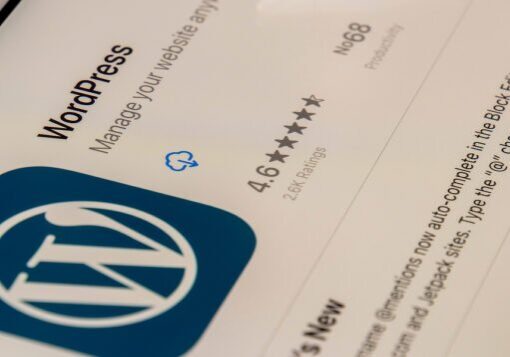The open-source platform WordPress is a web content management system originally devised as a tool for publishing blogs. First released more than two decades ago, it remains highly relevant. Since its early days, it has evolved to support publishing a wide range of other web content, from mailing lists to online stores.
WordPress offers a number of benefits, since it’s flexible, adaptable and user-friendly even if you’re new to running a website. What’s more, its sites are mobile-responsive and tend to rank highly with the major search engines such as Google – plus there are plug-ins extending functionality, while WordPress sites also have a built-in blog.
However, as with anything else, if your WordPress website has become out of date, that can cause problems, especially if you haven’t updated your website regularly. And if you try and update an old site, it can simply make matters worse.
Why you may have issues with an outdated WordPress site:
- Your site was poorly constructed in the first place
If your site has been custom built, it’ll have a customised rather than an off-the-shelf theme. If the developers have hard-coded some elements, upgrading custom-built websites can be tricky. - Plug-in licences have expired
There can be a number of reasons why this happens, including the simple facts that you may not have renewed them, or licences may have stopped working if you’ve changed developers. That doesn’t mean plug-ins will stop working, but there can be security risks, while the most important updates won’t be available to you. - Your WordPress theme is too old
Your installation of your site may be up to date, but if your theme is very old, this can be troublesome. There may be errors with PHP or Hypertext Preprocessor, the general-purpose scripting language geared to web development, or plug-in conflicts.
With a free theme, maybe support has elapsed, or perhaps it simply hasn’t been updated. With a bought theme, very commonly the licence is not renewed. With particularly outdated themes, it simply may not be possible to update them at all. - Your WordPress page builder plug-in has become outdated
This is another common issue. While these plug-ins give you an excellent level of control over your website’s content and layout, they can also be very involved. And if yours isn’t working effectively, essentially your website becomes useless.
Once again, a licence could have expired – equally, it may be that you weren’t even aware you needed one. - PHP has been upgraded on your server
If you’re using the new 8.X PHP versions, the theme or plug-ins added to an old WordPress site simply won’t work.
In summary, the older your site, the more probable it is that you will have problems when you do come to update it. So this job is one that’s typically best left to the professionals. And, generally speaking, we’d recommend updating anything older than WordPress 6.0.
Signs that your WordPress site needs updating
There are a number of these, including:
- Loading times are too long
- Images are broken or poor quality
- Your site won’t fit a mobile screen
- There’s no contact form to send messages from visitors directly to your email address
- Your check-out process isn’t simple and secure, with an SSL certificate
- Your ‘bounce’ rate is too high
If it’s been more than a year since your site was updated, an upgrade is in order, not least if you want to retain an edge over your competitors. Address the points above, refresh the design, optimise pages and incorporate more user-friendly features to ensure the security and smooth running of your site.
At SWSweb, we work on a wide range of WordPress sites for myriad customers. We’ll be with you throughout, from initial design through to regular WordPress maintenance and ongoing support. Get in touch today for a quick quote – and look forward to seamless performance of your WordPress website.

